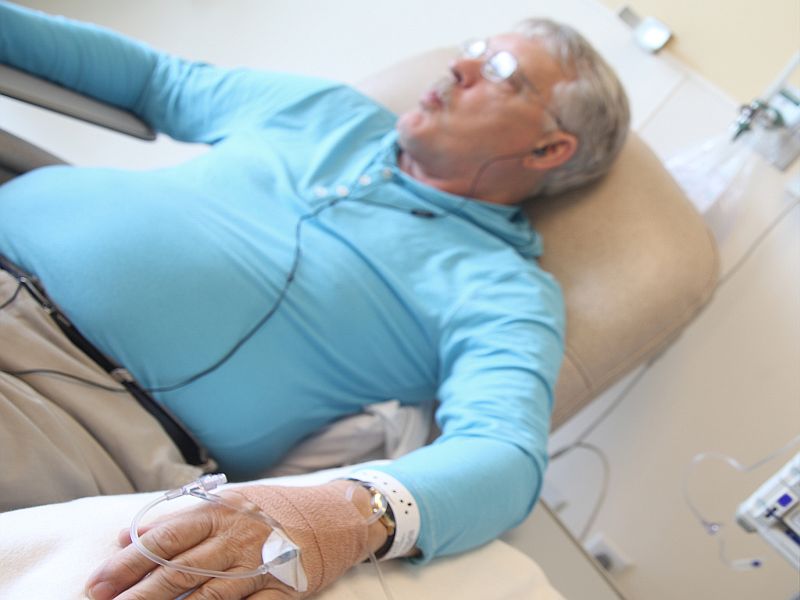
In some good news for older Americans, a new report shows that colorectal cancer rates among those over 50 fell 32 percent since 2000, while deaths from the disease fell by 34 percent.
Those declines are likely due to increased screening, which can prevent colorectal cancer by detecting and removing precancerous polyps, according to the report released March 1 by the American Cancer Society (ACS).
Among older adults, colorectal cancer rates are dropping fastest in those aged 65 and older, and for tumors located in the distal colon (the last part of the colon). The drop is slowest among those aged 50 to 64 and for rectal tumors, the researchers found.
For example, there was a 9 percent decline in the incidence of rectal tumors in men aged 50 to 64 and no decline among women in the same age group. But those rates dropped 38 percent in men and 41 percent in women who were over 65.
Every state saw a drop in colorectal cancer rates among people aged 50 and older, with a decline of more than 5 percent a year seen between 2009 and 2013 in seven states: California, Delaware, Maine, Massachusetts, Nebraska, Rhode Island and South Dakota.
The slowest declines were seen in states with the highest rates of colorectal cancer: Kentucky, Louisiana and Mississippi, according to the ACS report, which is published every three years.
As screening rates went up, colorectal cancer rates dropped, the report noted.
Between 2013 and 2015, colorectal cancer screening increased from 53 percent to 58 percent among those aged 50 to 64, and from 65 percent to 68 percent in people aged 65 and older. For both groups combined, screening rates climbed from 59 percent to 63 percent during those years.
That increase translated into an additional 3.7 million adults over 50 who were screened in 2015. If screening rates stay at that level, about 40,000 colorectal cancer cases and just over 37,000 deaths from the disease will be prevented through 2030, the researchers said.
But there was bad news in the report: While colorectal cancer rates among Americans aged 50 and older fell, rates among those younger than 50 rose 22 percent from 2000 to 2013.
According to a report published Feb. 28 in the Journal of the National Cancer Institute, Gen Xers and millennials are experiencing significant increases in colon and rectal cancer.
And this may portend an overall increase in colorectal cancer in the years to come, the authors of that study said, adding that an old foe might be to blame — the obesity epidemic.
It’s important for primary care doctors to be aware of this trend and act on symptoms of colorectal cancer even in their younger patients, the researchers suggested. With screening, the cancer can be caught early, when it’s curable. Currently, screening is recommended to start at age 50.
Colorectal cancer is the third most common cancer in Americans. In 2017, there will be an estimated 95,500 new cases of colon cancer and 39,900 new cases of rectal cancer diagnosed in the United States.
More information
The U.S. National Cancer Institute has more on colorectal cancer screening.
Source: HealthDay

Leave a Reply